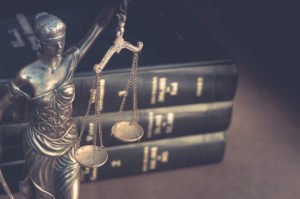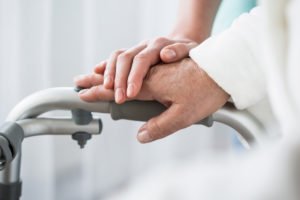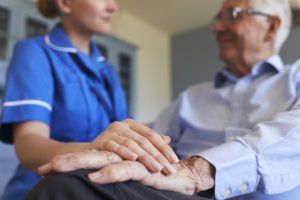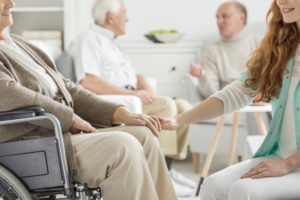
Nursing home abuse is a significant challenge in the United States that likely impacts many more seniors than reported yearly. If your loved one is the victim of nursing home abuse, you have a lot to deal with and may feel overwhelmed. You have many things to handle at once:
- Reporting the abuse.
- Working with the proper authorities.
- Getting your loved one the care that they need.
- Finding a new nursing home for them to live in.
- Exercising due diligence on the facility to ensure that they will not face danger at their new nursing home.
That is a lot to deal with. Should you decide to take legal action against the nursing home or its staff for harming your loved one, that simply adds another task to your list.
Fortunately, a Miami nursing home abuse lawyer can help you throughout the process to seek the compensation your loved one deserves. The team at Ben Crump Law, PLLC, can provide you with the answers you need. Contact us today at 800-959-1444 to schedule a free consultation to discuss what happened. We are happy to explain the legal process and the next steps you could take to pursue justice and compensation after reporting nursing home abuse of a loved one.
Signs of Nursing Home Abuse
Sometimes, it can be difficult to know if a loved one suffered abuse at their nursing home, especially if they cannot disclose what happened to them. Some seniors might be unable to report the abuse due to a cognitive disorder or fear of retaliation from the caregivers they depend upon. Some signs of nursing home abuse to look out for include:
- Unexplained bruises or bedsores
- Frequent infections or illnesses
- Missing items or money
- Depression
- Social withdrawal
- The smell of urine or feces
- Soiled clothing
This list highlights just some of the signs of nursing home abuse that you might expect to see if your loved one has suffered abuse at the hands of nursing home staff, vendors, fellow residents, or visitors to the facility.
However, you do not need to notice any of these signs of abuse to start the legal process against the nursing home and the individual who abused your loved one.
For a free legal consultation with a nursing home abuse lawyer serving Miami, call 800-712-9119
Next Steps to Report Abuse
If you have any reason to suspect abuse or neglect of your loved one at their nursing home, it is essential to file a report with the nursing home and the Agency for Health Care Administration (AHCA) to properly investigate what happened. Should you decide to seek legal action because of the abuse, these reports can serve as evidence and documentation that you can use later.
Even if you do not think that you will seek legal action, it is still a good idea to have these reports available in case you change your mind. It can take time and money for the necessary treatment to recover after abuse, and your loved one deserves everything that they are entitled to get.
If your loved one suffered physical or sexual abuse, getting help from a physician not associated with the nursing home can address health concerns. In most cases, a therapist can provide cognitive therapy to help address the mental and emotional health concerns arising from the abuse. The treatment could be long-lasting, as it can take months or years to overcome the effects of nursing home abuse.
Should you decide to seek legal action, you might want to speak with a Miami nursing home abuse lawyer sooner than later. Florida Statutes 400.0236 sets the statute of limitations to file a nursing home abuse lawsuit at only two years. Call Ben Crump Law, PLLC, today to get started.
Miami Nursing Home Abuse Lawyer Near Me 800-712-9119
Protecting Your Loved One
Nursing home abuse can leave you feeling as if there is nothing that you can do to protect your loved one at a residential care facility. Fortunately, we have outlined some things that you can do to protect your loved one from future harm:
- Find a new nursing home: According to the National Center on Elder Abuse (NCEA), nearly one in three nursing homes have received citations for federal violations of the standard of care. That leaves that two other nursing homes that did not have a citation and could potentially be a better and safer fit for your loved one.
- Holding the nursing home accountable: Seeking legal action against the liable nursing home can hold it accountable and warn other people about the potential dangers at that facility.
- Seeking therapy: Your loved one may need mental health therapy to properly deal with their feelings after the abuse, even after finding a safer place for them to live. You may also benefit from talking to a mental health professional about your feelings after the incident.
These are just a few steps that you can take to protect your loved one after experiencing nursing home abuse. You can speak with their healthcare providers and therapist to determine what other steps you can take to improve the situation and make them feel secure. While it may take time, recovery is possible after nursing home abuse.
Click to contact our Miami Personal Injury Lawyers today
Understanding Your Rights
It is your right to feel safe and comfortable with the level of care and support that a nursing home provides your loved one. Without providing adequate care, this form of neglect can lead to adverse health outcomes. Additionally, you should not tolerate any form of abuse.
If a person or nursing home facility fails to uphold its responsibilities under Florida Statutes 400.022 and harms your loved one, either through abuse or neglect, it is your legal right to hold them accountable.
Complete a Free Case Evaluation form now
Call Us to Discuss the Details of Your Potential Case
If your loved one was the victim of nursing home abuse, they could qualify for compensation that helps take care of medical expenses, pain and suffering, and the transfer to a nursing home that can provide better care. A Miami nursing home abuse lawyer can fight for the justice and compensation you deserve. Call Ben Crump Law, PLLC, today at 800-959-1444 for a free no-obligation case review with a team member.
Call or text 800-712-9119 or complete a Free Case Evaluation form








